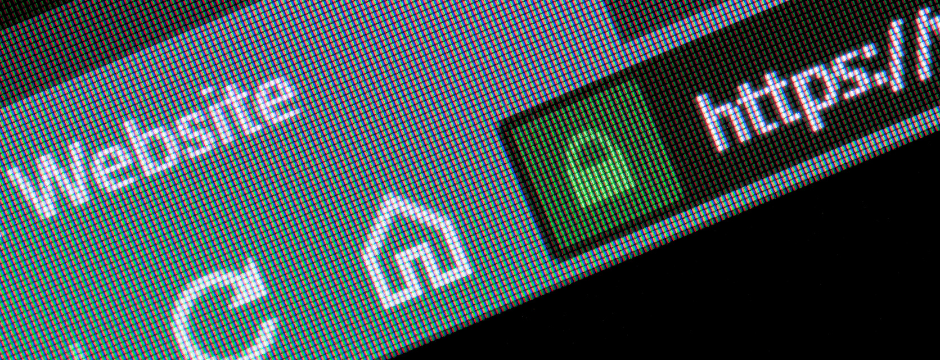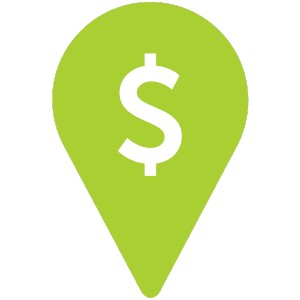How much money do I currently have?
How much money can I spend on a living space?
These are important questions when thinking about living on your own.
One way to answer these questions is through keeping and maintaining a budget. Budgeting can help you track how much you’re spending and see how much you have left.
Budgeting can be a big task, but learning how to budget is a useful skill that can help you plan your finances and ultimately help you live independently. It’s like having a map for your finances.

Budgeting helps you:
Every month, you’ll probably have common payments, such as:

When renting, you may also encounter extra costs. Depending on your agreement with your landlord, you may have to pay for utilities like water, gas, and electricity separately, or it could be part of your rent. When finding a place to rent and considering rental costs, it is important to ask the person renting out the living space if utilities (such as water, gas, and electricity) are included in the main fee or not. Doing this can help you know what places you can and cannot afford.
While you’re budgeting, it’s good to keep some money aside for unexpected things. This money would not be used for common purchases but could be used for emergencies or unexpected expenses, like a financial safety net.
It can help with things like:
As you learn how to budget, there are support systems in the community that can help you with your finances, such as banks and certified financial advisors. It is important to note that while friends and family may be able to offer some financial advice, it is best to ask a professional who is trained to help people with their finances.
To help you stick to your budget, some things you can do are:
When calculating your budget, you’ll want to note how much income you have. Income can be from jobs or other sources such as government benefits. There are government benefits that you can apply to for financial support.
Making a monthly budget can be difficult, so, let’s break it down! Here is what a monthly budget might look like for someone making $30,000 a year after taxes, who also gets a $100 contribution monthly from their family, takes public transportation, saves $100 monthly, and does not rent. The leftover money you get from this table when you put in your own amounts, would show you how much you can spend on rent and utilities.
| Sample Budget with No Rent | |
|---|---|
| Income | Amount per month ($) |
| Take-home pay (the main source of income, typically wage or AISH, after any deductions) | $2500 |
| Additional income (gifts, grants or scholarships, etc.) | $100 |
| Total monthly income | $2600 |
| Fixed expenses (same each month) | |
| Transportation (public transit) | $112 |
| Transportation (car, gas, insurance, maintenance) | $0 |
| Phone | $50 |
| Medical/Dental (including prescriptions) | $100 |
| Subscriptions (Netflix, Apple Music, etc.) | $30 |
| Savings for unexpected emergencies | $100 |
| Other expenses not listed | $0 |
| Total monthly fixed expenses | $392 |
| Variable expenses (different each month) | |
| Groceries | $250 |
| Personal care (toiletries, hair care, laundry, haircuts) | $60 |
| Recreation (movies, games, concerts, sports, etc.) | $100 |
| Clothing and footwear | $110 |
| Other expenses not listed | $0 |
| Total monthly variable expenses | $510 |
| Total | |
| Total monthly income | $2600 |
| Total monthly expenses (fixed + variable) | $902 |
| Money leftover (monthly income – monthly expenses) | $1698 |
Looking at the table above, this person would have $1698 to spend on rent and associated fees such as a parking spot and utilities.
According to a rental website, Zumper, the average rent for a 1 bedroom apartment typically ranges from $1,395 to $1,906 monthly. For our example purposes, let’s assume this person’s rent is $1,600 with utilities included, below we can see what the same budget above would look after paying rent:
| Sample Budget with Rent | |
|---|---|
| Income | Amount per month ($) |
| Take-home pay (the main source of income, typically wage or AISH, after any deductions) | $2500 |
| Additional income (gifts, grants or scholarships, etc.) | $100 |
| Total monthly income | $2600 |
| Fixed Expenses (same each month) | |
| Rent | $1600 |
| Utilities | $0 |
| Transportation (public transit) | $112 |
| Transportation (car, gas, insurance, maintenance) | $0 |
| Phone | $50 |
| Medical/Dental (including prescriptions) | $100 |
| Subscriptions (Netflix, Apple Music, etc.) | $30 |
| Savings for unexpected emergencies | $100 |
| Other expenses not listed | $0 |
| Total monthly fixed expenses | $1992 |
| Variable Expenses (different each month) | |
| Groceries | $250 |
| Personal care (toiletries, hair care, laundry, haircuts) | $60 |
| Recreation (movies, games, concerts, sports, etc.) | $100 |
| Clothing and footwear | $100 |
| Other expenses not listed | $0 |
| Total monthly variable expenses | $510 |
| Total | |
| Total monthly income | $2600 |
| Total monthly expenses (fixed + variable) | $2502 |
| Money leftover (monthly income – monthly expenses) | $98 |
As you can see, this person could afford this apartment, with $98 extra. However, if this person had to pay $250 monthly for utilities on top of their $1600 rent, they would be in debt by $152. In this case, the person would either have to find somewhere cheaper, or try and reduce their expenses.
While all of the above are just examples, they show you where your money might go when living independently, and that expenses vary depending on how you want to live your life.
Based on how much you can afford, using the calculations above, this could affect your housing decisions.
Many financial factors should be considered when deciding to move, so it is extremely important to make budgets and meet with professional financial advisors and/or community housing services to make a plan.
Commonly, it can impact choices about:

When you’re budgeting, you may connect more frequently with the employees at your bank.
That being said, it is important to note that there are some people who may try and act like your bank, but these can be scams that are trying to steal your information and are not actually people associated with your bank. If someone calls you saying they are the bank, you can tell them that you will call them back using the number on the back of your debit or credit card, or go in-person. Your bank should never ask for personal details on the phone. As well, if you ever get any emails or texts claiming to be from your bank, make sure not to click on any links or reply, but rather call them up using the number listed on the back of one of your bank issued cards, or go in person.
You can also find your bank online and use online banking if you have it set up. When you go to your banking website, always check for the lock symbol in the top left of the search bar, this indicates that the website is secure.

You might wonder why it’s not safe to call back the same number or use the links provided in a call, text, or email claiming to be from your bank. This is because in common banking scams, they often use different numbers, websites, or email addresses that aren’t really from your bank. Sometimes, it’s hard to tell because they might use numbers that used to be registered for that bank, or use similar web or email addresses.
For more information on being safe when managing your money, contact someone at your bank to make an appointment.
As you go through this information, if there is something that you would like help with, please reach out for assistance.





